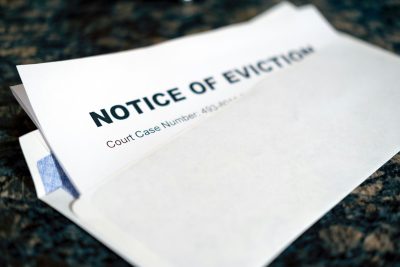
The housing shortage has put the legislative spotlight on everything housing related. From affordable housing, short term rentals, zoning and property taxes to long term rentals. Recently, the Colorado legislature passed a new bill that the governor signed into law this April. It puts into effect new long term rental rules in Colorado.
Colorado housing bills
Recently, the Colorado legislature voted down a couple of bills that would increase property taxes on short term rentals from residential rates to commercial rates. I assume they will make some changes and try another version of this at some point down the road. I doubt it is dead forever but at least it is dead for now.
Colorado’s new, long term rental rules
Housing is not off the legislative table yet though. The new long term rental rules that were just signed into law give Colorado landlords a few more hoops to jump through. HB24-1098 is all about keeping landlords from discriminating or retaliating against their tenants which could put them in jeopardy of losing their housing. These new long term rental rules in Colorado will require more time, diligent record keeping and some planning ahead.
Required 90 day notice to tenants
Basically, the tenant has to have 90 day notice before they will lose their housing. Under the new long term rental rules, a new lease, at reasonable terms, must be offered to tenants that have lived in the residence for a year or more. If they choose not to sign it, landlords must serve a 90 day notice to vacate. If the homeowner would like to sell, do substantial remodeling or move into the property, landlords must serve a 90 day notice to vacate. Landlords don’t have to offer the renewal to tenants that have twice been more than 10 days late on their rent during their lease, as long as the appropriate steps were followed when they were late. However, landlords still need to serve the 90 day notice to vacate.
Keep in mind, none of these notices to vacate terminate the lease early. The tenant has the right to occupy the property throughout the term of the lease. Tenants can choose to stay after the expiration of the lease term until the end of the 90 day notice if the dates are not the same.
Plan ahead
Both landlords and tenants need to know what their plans are more than 90 days before the end of the lease. Decisions about signing leases and giving notices must happen well in advance of the end of the lease term in order to comply with the new long term rental rules in Colorado.
Document issues
If the tenants are difficult or not following the rules, a landlord no longer has the option to just not renew the lease. Documenting issues and giving appropriate notices is even more imperative to prove there is cause not to offer the renewal. The documentation will not only prove your case, it may prevent a tenant from claiming there is not cause for not offering a renewal and, therefore, eliminating a potential court case.
New rules apply to everyone
For the most part, If the rental property is residential, these rules will apply. There are exceptions if the rental is the landlord’s primary residence, a mobile home or an entire complex with more than four units. Owning just one rental or 1,000 rentals makes no difference. Remember, in Colorado, all tenants that have been in place more than 12 months need 90 day notice before losing their housing due to the new, long term rental rules.
Month to month renters
Even month to month tenants need notice too. The total length of time the tenant has been in the property determine how much notice is necessary. Tenancy between six months and a year requires 28 days notice but if it goes over the 12 month threshold, 91 day notice is necessary. In addition to the increased notice, the rest of the stipulations in the bill must be followed. That includes offering a new lease. One of the benefits of a month to month lease for the landlord is the ability to remove a difficult tenant quickly if desired. This bill may encourage landlords doing month to month rentals not to rent to anyone for longer than a year to avoid the additional requirements.
Disclosure
We are not attorneys. The information in this article is a brief overview of the new bill. It is not legal advice. FJGG, a Colorado law firm, put together an article with more in depth information about for cause evictions in Colorado. We are putting processes in place in our property management business to ensure compliance with the new laws. We recommend homeowners considering or involved in long term rentals talk to a Colorado attorney to get legal advice for their particular situation.


Leave a Reply